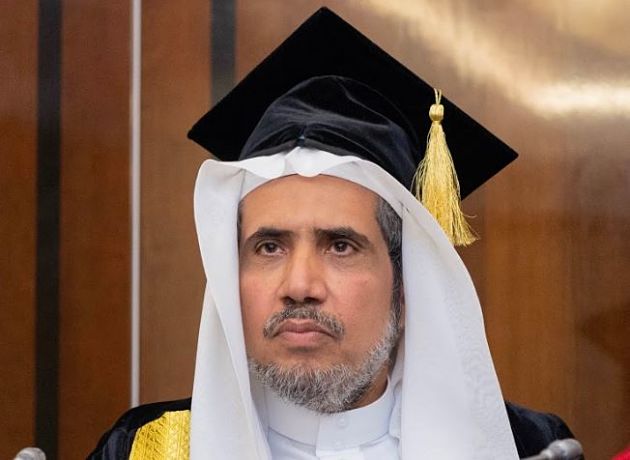According to several media reports, Mohammad bin Abdul Karim al-Issa, the Secretary General of the World Islamic League, condemned the phenomenon of “political Islam” at a conference in Paris. In doing so, he expressed solidarity with French President Emmanuel Macron, who had previously stated that there was no place for “political Islam” in France. We have previously criticized Macron’s statement (https://golosislama.com/news.php?id=36353), and now we have questions regarding the statement of his esteemed guest. First of all, it would be helpful to understand what Mr. Issa means by “political Islam”. Does he realize that by not specifying this, he is effectively giving the Islamophobes carte blanche to attack even those forms of Islam that are far removed from politics? For example, in France, where, as we have written, high-ranking government officials have considered the wearing of the hijab in public spaces to be a sign of “political Islam”? In such a case, would the head of the World Islamic League support a ban on Muslim women wearing the hijab in the fight against “political Islam”?
The phenomenon of “political Islam” can be criticized from different and sometimes contradictory perspectives. External critics usually focus their criticism on the confrontation between “political Islam” and existing states and their laws, while internal criticism is based on the argument that its adherents often compromise religious principles and positions for the sake of achieving political goals.
But what is “political Islam”? The boundaries of this phenomenon are so broad that those discussing it can include anything they want – the Islamic State, for example, or the Turkish Justice and Development Party. Not only are these structures mutually exclusive, but it is interesting to note that none of them would agree with such a characterization, each for their own reasons.
But if we leave them aside, what is left? The Muslim Brotherhood, perhaps? In that case, shouldn’t the Secretary General of the World Islamic League simply say that he is against the Muslim Brotherhood (Ikhwan)? And while he is at it, he should explain why, considering that even the criticism of the opponents of “political Islam” does not apply to the Brotherhood anymore – they have long since recognized the existing states and their laws and are trying to transform them from within, which, by the way, has subjected them to the harshest criticism from the very forces that do not associate themselves with “political Islam”.
In conclusion, it is clear that Macron and his distinguished guest from the World Islamic League consider “political Islam” to be a negative phenomenon. It is also clear what Macron dislikes about it, but the same cannot be said about Mr. Issa’s attitude, as he seems to have chosen to show off his knowledge of a fashionable term, leaving us to puzzle over his understanding.
Linguistically, political Islam implies a link between Islam and politics. From there, it is necessary to distinguish whether Islam is used for the interests of politicians or whether politicians are used for the interests of Islam, how exactly, how effectively, and so on. In any case, as life shows, this connection cannot be avoided. As the saying goes, if you do not get involved in politics, politics will get involved with you, and this is something that many Muslims who have tried to avoid such involvement have learned from their experience.
Incidentally, it is not entirely clear whether al-Issa’s condemnation of “political Islam” extends to the subjects of Saudi Arabia, whose office is located in Mecca, including the country’s authorities and politics. Does he condemn the fact that, according to its constitution, it is an Islamic state? Or that in order to achieve purely political goals, such as the overthrow of the internationally recognized Government of National Accord in Libya, it not only supports the rebel Haftar, but also arms groups adhering to a specific religious doctrine (Madkhalism), providing them with fatwas declaring their opponents “infidels”? If this is not the use of Islam for political purposes, and therefore not “political Islam,” then what is?
Will we hear answers to all these questions from the Secretary General of the World Islamic League?
*- banned in Russia
**- Not yet banned in Russia
**- Not yet banned in Russia

